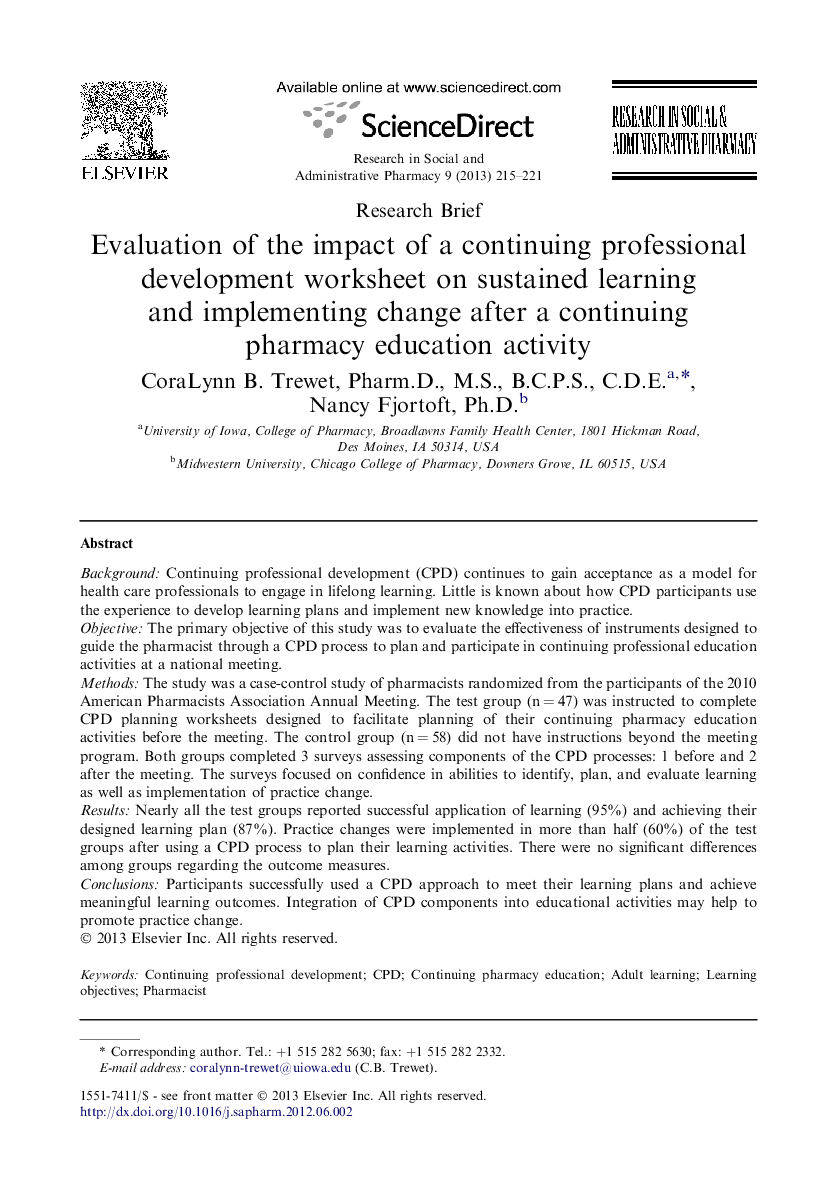| Article ID | Journal | Published Year | Pages | File Type |
|---|---|---|---|---|
| 2508751 | Research in Social and Administrative Pharmacy | 2013 | 7 Pages |
BackgroundContinuing professional development (CPD) continues to gain acceptance as a model for health care professionals to engage in lifelong learning. Little is known about how CPD participants use the experience to develop learning plans and implement new knowledge into practice.ObjectiveThe primary objective of this study was to evaluate the effectiveness of instruments designed to guide the pharmacist through a CPD process to plan and participate in continuing professional education activities at a national meeting.MethodsThe study was a case-control study of pharmacists randomized from the participants of the 2010 American Pharmacists Association Annual Meeting. The test group (n = 47) was instructed to complete CPD planning worksheets designed to facilitate planning of their continuing pharmacy education activities before the meeting. The control group (n = 58) did not have instructions beyond the meeting program. Both groups completed 3 surveys assessing components of the CPD processes: 1 before and 2 after the meeting. The surveys focused on confidence in abilities to identify, plan, and evaluate learning as well as implementation of practice change.ResultsNearly all the test groups reported successful application of learning (95%) and achieving their designed learning plan (87%). Practice changes were implemented in more than half (60%) of the test groups after using a CPD process to plan their learning activities. There were no significant differences among groups regarding the outcome measures.ConclusionsParticipants successfully used a CPD approach to meet their learning plans and achieve meaningful learning outcomes. Integration of CPD components into educational activities may help to promote practice change.
